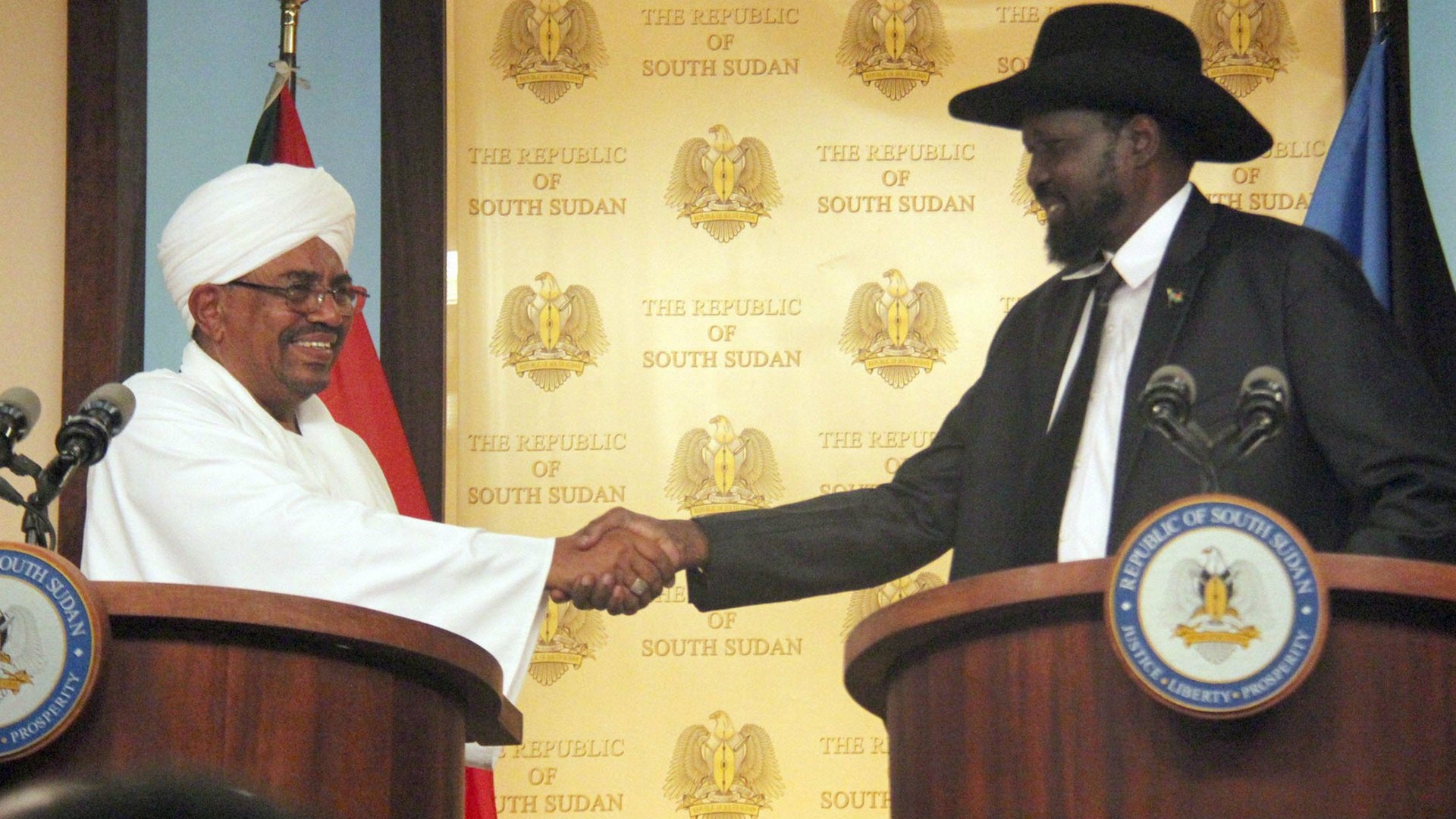In Sudan, the threats sound like war but it’s only the way they talk
In one of Africa’s most destabilizing conflicts, Sudan and South Sudan have been at economic war for most of the two years since they split into separate countries, resulting in financial havoc for both and a loss of hundreds of thousands of barrels of crude oil exports. Now they are threatening war again, but they appear to be engaging more in harsh rhetoric than any intention to actually fight, say two Africa analysts with Eurasia Group.


In one of Africa’s most destabilizing conflicts, Sudan and South Sudan have been at economic war for most of the two years since they split into separate countries, resulting in financial havoc for both and a loss of hundreds of thousands of barrels of crude oil exports. Now they are threatening war again, but they appear to be engaging more in harsh rhetoric than any intention to actually fight, say two Africa analysts with Eurasia Group.
On June 8, Sudan President Umar al-Bashir threatened “holy war” and a cutoff of South Sudan’s oil export pipeline as punishment for its alleged support for rebels operating in Sudan. He gave the south 60 days to stop supporting an offshoot of the rebel Sudan People’s Liberation Movement (SPLM-N). In response, South Sudan President Salva Kiir denied support for the SPLM-N, but said that he, too, is prepared for war.
More than one million people have been displaced by the fighting between the north and the south, and forces associated with each of them. In addition, South Sudan cut off its 360,000 barrels a day of oil exports that pass through the north, alleging that Khartoum was stealing crude from the pipeline.
In April, the South resumed the oil flow, and has been shipping between 100,000 and 200,000 barrels a day through Sudan to the market. And while the volumes could decline a bit, Clare Allenson and Philippe de Pontet, analysts for Eurasia Group, told me that they do not expect any imminent shutoff of the flow despite the exchange of threats. Nor do they expect fighting.
“Full-out war is not at all our base case,” Allenson said.